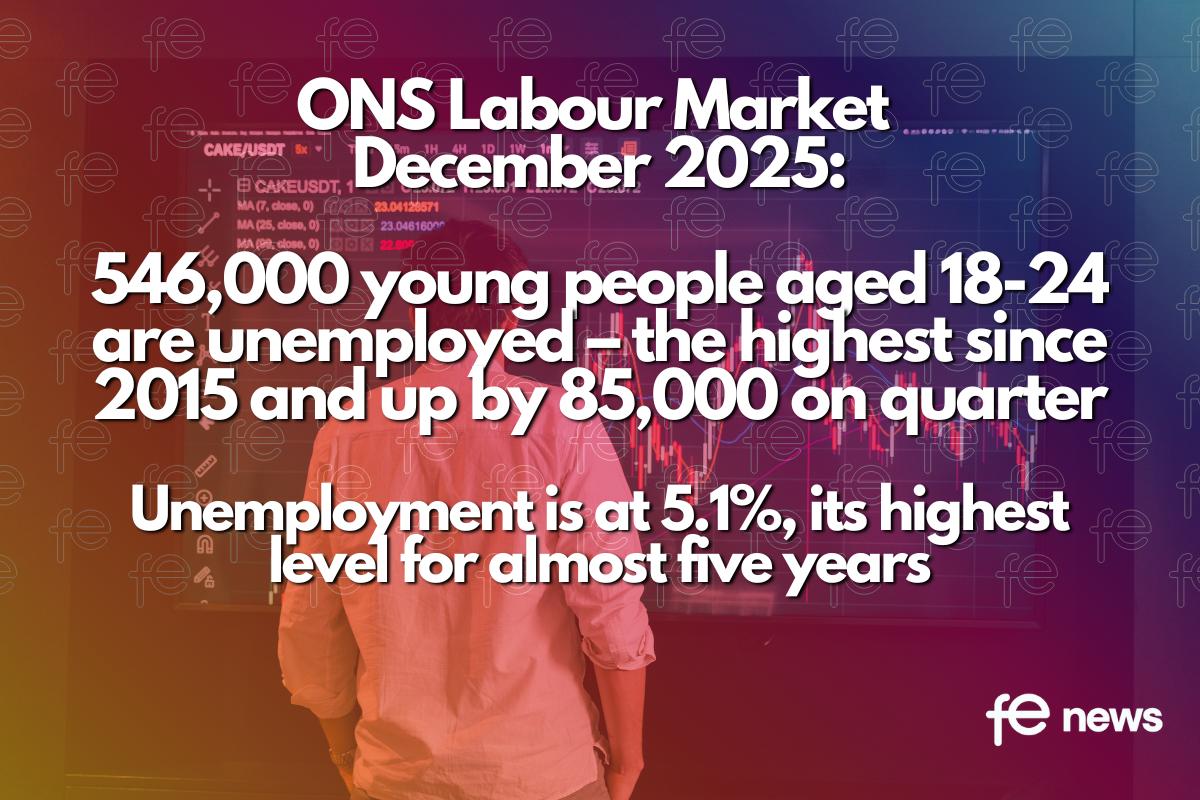Sector Response to Boris Johnson’s Four Step Roadmap exit to lockdown 3

@BorisJohnson set out his four-step plan to release England from lockdown 3 in the House of Commons today
The Prime Minister, Boris Johnson set out his four-step roadmap for England to move out of lockdown 3 in the House of Commons today (Monday 22nd February 2021). After 17.5 Million vaccinations have been administered to date, and every adult offered vaccination by the 31st July, the PM laid out his roadmap plans to be a ‘one-way road to freedom’.
Mass testing for secondary pupils as all schools and colleges fully reopen from 8 March 2021
- Schools and colleges to reopen to all pupils from 8 March with asymptomatic COVID-19 testing in place
- University students on practical courses to return from 8 March
- Protective measures across education strengthened, with students in year 7 and above to wear face coverings indoors, including classrooms, where social distancing cannot be maintained
The government has today [Monday 22 February] set out its plan for the return of all pupils to schools and colleges as part of the roadmap for leaving lockdown, published this afternoon on gov.uk.
The government has been clear that the return to face-to-face education is the national priority and that two weeks’ notice would be given ahead of any change. The return to school for all pupils is being prioritised due to the significant and proven impact caused by being out of school to the health and wellbeing of children and young people.
All students will begin to return to face-to-face education on 8 March with the following testing measures in place:
- All primary school children will return on Monday 8 March. Primary school staff will continue to take two rapid COVID-19 tests each week at home.
- All secondary school and college students will take three COVID-19 tests as they return to the classroom from the 8 March at existing school testing facilities. Schools and colleges will have discretion on how to test students over that week to enable their return to the classroom. After the initial programme of three tests in school or college, students will be provided with two rapid tests to use each week at home.
- Secondary school and college staff will also be provided with two tests to use each week at home.
- University students on practical courses who need to access specialist facilities and equipment can return to in-person teaching and learning from Monday 8 March. Twice weekly testing will continue to be available for all on campus.
Wraparound childcare for primary and secondary pupils will resume from Monday 8 March where necessary to enable parents to access work, education or medical care.
Staff and students in secondary schools and colleges are advised to wear face coverings in all areas, including classrooms, where social distancing cannot be maintained, as a temporary extra measure.
For the remaining university students, the government will review, by the end of the Easter holidays, the options for timing of their return. This will take account of the latest data and will then be a key part of the wider roadmap steps. Students and institutions will be given a week’s notice ahead of any return.
All staff at private, voluntary and independent nurseries will have access to tests to use twice weekly at home, building on the testing already available to maintained nursery schools and school-based nurseries. Childminders can continue to access community testing, and the Department continues to work with colleagues across government to review the testing approach available for childminders.
Minister for Apprenticeships and Skills Gillian Keegan said:
“We know FE staff and students are so excited to get back in the classroom, which is why we’re delighted that that from March 8th further education providers will be able to welcome back all students.
“I want to thank the further education sector for their fantastic work, going above and beyond to make sure all students have been supported to continue their education and training during this difficult time.”
Education Secretary Gavin Williamson said:
“I know this is a moment that students and parents up and down the country have been waiting for, and I would like to take this opportunity to give my thanks to all education and childcare staff and parents who have worked so hard to make sure students have continued to receive a high-quality education throughout this lockdown.
“The testing of staff and students ahead of their return to secondary schools and colleges, alongside strengthened safety measures, should reassure families and education staff that extra measures are in place alongside the existing bubble system, enhanced hygiene and COVID secure precautions.
“We are all well aware that being back in school or college brings huge benefits to young people’s education, development and wellbeing. The classroom is the very best place for education and the return of face-to-face teaching for all pupils will be a welcome move for pupils and parents across the country.”
Testing in education settings is already well-established, as recent figures showed four million tests had been conducted across schools, colleges and universities.
Public Health England continues to advise that the existing range of safety measures in place in education settings remains appropriate – including bubble groups, staggering start and finish times, increasing ventilation and hygiene, regular testing and maintaining distance between adults where possible.
Extending the use of face coverings to classrooms is a temporary measure until Easter, and as with all measures the government will keep it under review.
Teachers should continue to be sensitive to the additional needs of their students, such as deafness, in deciding whether it is appropriate to wear a face covering.
Health and Social Care Secretary Matt Hancock said:
“We have rolled out rapid testing to schools and universities at great pace to help drive down transmission rates among school age children, college and university students. I am very pleased that regular testing is now supporting the reopening of schools and face-to-face education.
“Around one in three people who have coronavirus have no symptoms and will be spreading it without realising it, so rapid regular testing offers a reliable and effective additional tool to help keep schools safe.”
The consensus view from SAGE continues to be that missing out on classroom-based education has severe impacts for children and young people, with clear evidence that further time out of schools and colleges is detrimental for cognitive and academic development, learning, health and wellbeing.
Evidence from the Public Health England-led Schools Infection Study continues to show that infection rates in schools mirror infection rates in the wider community, suggesting schools are not the main driver of infections.
Testing sites already set up in secondary schools and colleges should remain operational for students who find it difficult to test themselves at home.
Boris Johnson’s four-stage roadmap:
Step 1 is from the 8th March 2021 – two weeks from today, from school and FE Colleges will start with face to face teaching, including twice weekly testing of secondary and FE college learners. The PM highlights, that families and childcare bubbles will be “encouraged to get tested regularly” when schools and colleges return, he also confirms, that Breakfast and after-school clubs will also reopen and other children’s activities like sport can restart “where necessary to help parents to work”.
Step 2 from the 29th March – the rule of six, for outdoor meets with mixed households. People will no longer asked to stay at home, people must work from home where they can. No essential retail, hairdressers and gyms will open. Pubs and bars will also open outdoors.
Step 3 from 17th May – limit of 30 people outside, and friends and family meeting indoors. Reopening of pubs and restaurants, theatres, hotels and sporting events will all be open.
Step 4 – 21st June – Nightclubs open and limitations on people meeting.
These steps will all be subject to four reviews:
First Review- Social distance and Facemasks – and will have an impact on working from home / returning to work
Second Review – International travel review by the 12th April 2021.
Third Review – Covid Status Certification review
Fourth Review – looking at the feasibility of major events.
Free workplace test kits until the end of June.
The PM explained that Government will not pull the rug out and Government will protect jobs and livelihoods across the UK and Rishi Sunak will update these plans in the budget next Wednesday.
In response to the Prime Minister’s announcement, the Leader of the Opposition Keir Starmer, asked the PM for clarity as to whether teaching staff will be prioritised for Covid vaccinations as his first question, along with questions ranging from small businesses to the importance of schools returning.
The PM responded to nearly all of Keir Starmer’s questions, unfortunately, there was no more clarification as to whether teaching staff would be prioritised for vaccinations.
So how did the Sector Respond to the PM’s four-stage Road Map to easing Lockdown 3?
Kirstie Donnelly MBE – CEO City & Guilds Group said:
“It’s really encouraging to hear from the Prime minster that FE Colleges and training providers will be able to reopen for face-to-face teaching again from 8 March. This year began without the normal anticipation of fresh starts and new challenges that we expect at the beginning of a New Year, as people’s hopes and aspirations for the future were put on hold by the third lockdown. So it’s very good news that hope and opportunity are returning and we can start to get people back into training, learning and assessment environments.
“Being able to access training has never been more relevant than right now as we begin to look towards a full recovery from the impact of Covid19. We now need to be able to fulfil skills needs of businesses, get people into jobs, create ambition and aspiration – it’s time to lead with hope and optimism.”
“Good to hear that many college students will be returning to face to face learning from next month” says Association of Colleges as Prime Minister Boris Johnson reveals route out of lockdown
Responding the government’s roadmap out of lockdown and how students in schools and colleges will return, Association of Colleges, Chief Executive David Hughes said:
“Disruption to learning due to lockdowns has been challenging for students’ education and wellbeing, so it’s good to hear the Prime Minister announce that many college students will be returning to face to face learning from next month. Colleges typically have thousands of students across varying ages, and they face a complex task now to prioritise who starts back first and how that will best meet the needs of students.
“We look forward to seeing the scientific evidence which sits behind the announcement. That will be important in reassuring staff and students of the low risks involved, with the right controls in place. The requirement for mass testing will be a logistical challenge, but colleges have used lockdown to prepare their sites and it will be a crucial element of keeping students and staff safe, alongside face coverings, social distancing, ventilation, phasing and rotas.
“Colleges can be trusted to make the best decisions for their students, staff and communities, as they have done since the start of the pandemic. Their focus will be on safely supporting every student to succeed at the end of their year, whether they want to progress into work, an apprenticeship, further learning in college or higher education. This roadmap gives a glimpse of the new normal, but we look forward to a long-term plan for overcoming lost learning which will be a major concern for the whole education system for the next couple of years. The return of students to colleges is positive, but it is not enough to avert a lost generation.”
Association of Employment and Learning Providers chief executive Jane Hickie said:
“The approach for adult learners seems entirely prudent. AELP’s understanding is that independent training providers will be able to order covid home testing kits soon and although the kits won’t arrive before the end of March, providers can make informed decisions about their delivery models whether that is remote delivery or the learner attending on site. It may be possible for instance to operate on site without needing to test by following the official guidance to protect learners including the wearing of masks.
“Our concern is however that all 16-19 learners with ITPs are expected by the government to undertake the majority of their planned hours on site from 8 March. For this to be mandated without twice weekly testing being available for ITPs and their learners constitutes a significant risk and we have raised the matter this afternoon with officials who have promised to consider it.”
Commenting on the Prime Minister’s statement on the reopening of schools, Natalie Perera, Chief Executive of the Education Policy Institute (EPI), said:
“Children across the UK have missed huge amounts learning time in school after nearly a year of disruption, with research showing that the most disadvantaged pupils have taken the biggest hit to their education. It’s therefore essential that we get all pupils back into the classroom as soon as it is safe to do so.
“It’s encouraging to hear from the Prime Minister directly that the decision to reopen all schools on the 8th March has the support of his scientific and medical advisers. We now need to see the government publish this advice in full, to ensure public confidence in the plans and to give assurance to teachers and school staff that they will not be at risk.
“Extra measures to limit the spread of the virus and to provide mass testing for pupils upon their return are a positive step, but this may not be a straightforward undertaking for all education settings, so the government needs to offer them support so that they are able to deliver this effectively.”
David Laws, Executive Chairman of the Education Policy Institute (EPI) said:
“After facing challenges following the switch to remote learning this term, pupils and their parents will be pleased to have a plan in place which allows them to return to the classroom in two weeks’ time.
“It is very welcome that the government has recognised the importance of education and children’s wellbeing by prioritising the return of schools – placing them well ahead of other sectors and areas of the economy.
“Now that we have these plans for the return of schools, we need to see this backed up with further support for academic catch up, including a big increase in the Pupil Premium to support the most disadvantaged pupils. The government should also look at summer programmes for young people which have a strong focus on wellbeing and extra-curricular activities.”
Professor Viv Bennett, Chief Nurse and Director of Maternity and Early Years, at Public Health England said:
“We have always advised that schools should be the last to close and first to open. It is vital for children’s wellbeing that we get schools open again.
“Staff, parents and pupils can feel reassured by scientific evidence that shows transmission in schools is low and that children are not drivers of infection in schools or the wider community.
“The system of controls and the introduction of rapid testing programmes in place in schools offer further reassurance in the measures taken to maximise the safety of the school environment.
“Most importantly, we know that infection rates in schools are driven by transmission in the wider community. It remains essential that we all continue to keep or contacts to a minimum and follow restrictions outside the school gates so that schools can re-open and stay open.”
Commenting on the Prime Minister’s statement confirming that all schools can open fully from 8 March, Dr Mary Bousted, Joint General Secretary of the National Education Union, said:
“Today’s announcement that all pupils will return to English schools on 8 March demonstrates, again, that Boris Johnson has, despite all his words of caution, failed to learn the lessons of his previous mistakes.
“Whilst cases of Covid infection are falling, along with hospitalisation rates, it remains the case, unfortunately, that cases are three times higher now than when schools re-opened last September. This fact, alone, should have induced caution rather than, in the words of Nadhim Zahawi an ‘ambitious’ school return which runs the risk of schools, once again, becoming, in the Prime Minister’s words on 4 January, ‘vector of transmission’ into the community. This risk is greatly elevated because of the new variants of Covid which are significantly more transmissive.
“Why has the English government not taken the same route as Scotland, Wales or Northern Ireland whose cautious, phased approach to school opening will enable their governments to assess the impact a return to the classroom will have on the R rate and to make necessary adjustments to their plans.
“A ‘big bang’ school reopening brings 10 million people back into crowded buildings with no social distancing and inadequate ventilation. The wearing of face masks by pupils and staff in in secondary school lessons is a welcome measure but it is not, on its own enough. The government has had two months to put extra mitigations in place to stop the growth in infection in schools that was seen from September to December. Where are the ventilation units for classrooms? Where are the nightingale classrooms? Where is the PHE testing which school leaders could rely upon to give more accurate results? It is no good political parties talking about these safeguards when they know very well that they have not been put in place and will not be put in place by 8 March. Words are cheap. Actions are needed.
“The government must publish the science and the modelling which informs their unique school return plan. It should also make plans to protect vulnerable and older education staff who should be supported to work from home until their vaccinations take effect.
“While schools and colleges will, as always, go the extra mile, headteachers should have been given the flexibility offered in the other nations to plan for a phased school return. It would have been far better to take that time to plan and implement a successful and sustainable wider opening – which today’s announcement does not, unfortunately, guarantee.”
Commenting on the re-opening of schools, Dr Will Shield, a Child and Educational Psychologist from the University of Exeter, said:
“It is vital that we prioritise wellbeing and mental health as schools re-open to all children. Lockdown has affected everyone, and we must recognise that no two people will have had the same experiences. Talking to children about ‘catching up’ is unlikely to be helpful as it suggests that they have not been learning over the past two months. We can therefore find ways to celebrate the learning that has happened during lockdown, whether this has been in the classroom or online.
“We know that some children have enjoyed learning at home, while many children will be excited to come back to school and see their friends. It will be important to welcome children back and give them the opportunity to talk about their experiences of lockdown. We must also support and thank school staff and teachers who continue to work relentlessly to ensure that children have opportunities to learn, both those in the classroom and those at home.”
The National Deaf Children’s Society has responded to reports that face masks will be mandatory in secondary school classrooms when schools return on March 8th.
Ian Noon, Head of Policy at the National Deaf Children’s Society, said:
“With England’s 35,000 deaf pupils close to a return to education, the goalposts on face masks have moved yet again. Public health must take priority, but bringing face masks into classrooms will have a devastating effect on deaf children’s studies, mental health and ability to take part in lessons.
“The Government cannot make an announcement and expect this to be enough. It must move quickly to show exactly how it will guarantee deaf children can still access their lessons.
“We cannot have a situation where thousands of deaf children and young people are unable to understand their teacher, leaving many with little point in even attending class.
“The future of their education is at stake and the clock has already started.”
Universities UK has welcomed the UK government’s roadmap for easing lockdown restrictions in England, which confirms that all students on practical and practise-based courses who require access to specialist equipment or facilities can return to universities from 8 March 2021.
Professor Julia Buckingham, President, Universities UK said:
“This announcement is a long-awaited boost for students in England on practical and practice-based subjects, whose access to specialist facilities – laboratories, studios, workshops and performance spaces – is essential. Universities look forward to welcoming these students back to Covid-secure campuses from 8 March, where safety measures including serial asymptomatic testing and social distancing will be in place to ensure the risk of transmission remains low.
“While today’s news is positive for some students, it will be disappointing for others that had hoped the government would have allowed them to return. University staff will continue working hard to keep all students motivated, supported, and progressing towards their qualifications. There will also need to be a further focus on supporting students’ mental health and wellbeing in the weeks ahead.”
The University and College Union (UCU) today (Monday) said any wider reopening of college and university campuses from 8 March is irresponsible and risks undoing the country’s hard work to get Covid rates down.
The union called on employers to use common sense and keep teaching online wherever possible to reduce the risk of further Covid outbreaks. It said that for many courses this would mean there should mean no return to on-campus activity this academic year.
Where courses do require an element of in-person teaching, the union said employers must meet with UCU health and safety representatives to agree new risk assessments to protect staff, students and the wider community. It said assessments need to take account of a number of factors including the increased transmissibility of new variants, ventilation, PPE and how to support workers who need to shield. It also raised concerns over the potential use of unreliable lateral flow tests.
UCU said that where staff feel their health and safety is being put at risk, it will support members to fight to protect themselves, colleagues and students, including through industrial action ballots.
UCU general secretary Jo Grady said: ‘The Prime Minister seems to be pushing ahead with an irresponsible reopening of schools, colleges and universities at the same time. Pushing students and staff back onsite increases the risk of more Covid outbreaks and threatens to undo the country’s hard work to get infection rates down.
“Lateral flow tests are completely unsuitable for testing on campuses. They are unreliable and incorrect negative results may give people a false sense of security, increasing the risk outbreaks. The government must not use them to reopen colleges and universities.
“We expect employers to keep teaching online wherever possible to prevent campuses from seeding the virus. For many courses this will mean no return to campus this academic year. UCU accepts that some university and college courses will need some in-person teaching but this needs to be very carefully managed to keep staff and students safe. Employers will need to agree new risk assessments with our health and safety representatives that take account of increased transmission rates of new variants, ventilation, PPE and how vulnerable employees will be supported to stay off campus.
“Employers must work with us to protect staff and student safety. If our members feel their health and safety is being put at risk, then we will support them to protect themselves, including through balloting for industrial action where necessary.”
CBI SOUTH WEST RESPONDS TO GOVERNMENT ROADMAP OUT OF LOCKDOWN IN ENGLAND
Deborah Fraser, CBI South West Director:
“The Prime Minister’s roadmap offers hope that the country can get back to business in the coming months.
“The roadmap is a good starting point to the hard yards ahead and caution is rightly the watchword. Businesses in the South West back the step-by-step approach to re-opening and an end to damaging stop-start restrictions. And getting children back into the classroom first is as much a priority for business as it is for families across the country.
“We now need to turn this roadmap into genuine economic momentum. The Budget is the second half of this announcement – extending business support in parallel to restrictions will give firms a bridge to the other side. This is particularly needed for sectors who will have to wait for up to three months to re-open and have an anxious 10 days ahead before the Budget.
“Meanwhile businesses are committed to working with government to refresh practical guidance for firms and to fast-track the roll out of tests in workplaces in the months ahead.
“With good news coming every day on the vaccines, the roadmap offers a pragmatic and safe route out of lockdown in England. South West businesses will play their full part in doing so with public health in mind and the confidence to kickstart a recovery.”
LGA responds to roadmap out of lockdown announcement
Responding to the Prime Minister’s announcement of a roadmap out of the national lockdown, Cllr Ian Hudspeth, Chairman of the Local Government Association’s Community Wellbeing Board, said:
“Councils will do all they can to turn this roadmap into a reality by building on successful work with the NHS on the vaccination roll-out. Widespread community testing in schools, businesses, care homes and other places – coordinated by councils – will also be absolutely fundamental in bringing down infection rates and releasing restrictions on our lives and economy.
“Councils want all children to return to school to continue with their education and will be working closely with the Government, education leaders and schools to make sure the return on March 8 is a success. Further clarity is needed on how all children, particularly those from disadvantaged backgrounds, can recover the education that they have missed out on, as well as on funding and resources for any educational “catch-up” programme.
“We all need to continue to play our part to ensure our lives can return back to normal by following social distancing rules, wearing a face covering and washing our hands regularly. It is also vital that we all do the right thing and self-isolate when required. To help, the Government needs to ensure its £500 self-isolation payment support scheme continues and is available to all those in need of financial support as a result of the requirement to self-isolate.”
Cautious approach is the right one and must apply to schools, says UNISON
Commenting on the Prime Minister’s roadmap for emerging from pandemic restrictions, UNISON general secretary Christina McAnea said today (Monday):
“A cautious approach is the right way to balance getting the country moving again and limit virus spread.
“It’s clear restrictions were relaxed too quickly last time and there can be no repeat mistakes.
“By ensuring staff are encouraged to have the vaccine by their employers and paid wages in full if they need to isolate, ministers can drive infection rates down even further.
“The government should also follow the lead of Scotland, Wales and Northern Ireland by applying that steady approach to schools with a phased reopening rather than going for broke. Along with toughening safety measures, that’s the way to keep staff, pupils and everyone else safe.”
NASUWT COMMENTS ON THE ANNOUNCEMENT OF FULL SCHOOL AND COLLEGE OPENING ON 8 MARCH
Responding to the announcement by the Prime Minister that all pupils are to return to schools and colleges from March 8, Dr Patrick Roach, General Secretary of the NASUWT-The Teachers’ Union, said:
“The Prime Minister has stated that it is his priority to get all pupils back to school and college. However, re-opening schools and colleges fully on 8 March is one thing; keeping them open and preventing the need for further national restrictions is quite another.
“The Government’s failure to demonstrate that it has taken full account of the scientific evidence to support its decision on full reopening risks undermining the confidence of the public and those working in schools and colleges.
“It is vital that the Government recognises that it has already lost the trust of many teachers and needs to do much more to win the confidence of a profession that has continued, throughout the pandemic, to deliver everything that has been asked of them.
“Although the rollout of the vaccination programme is going well, it is hugely regrettable and frustrating that the Government has continued to refuse to prioritise education staff in the vaccination programme. Vaccinating education staff would send a clear message that the Government is taking seriously the concerns of the profession and demonstrating a genuine commitment to limiting the risk of further disruption to children’s education.
“Vaccinating education staff can be done now if there is the political will to do so. There is simply no excuse and no reason to not do so.
“We have long argued for a competent system of test, trace and isolate. However, the decision to provide mass testing for secondary age pupils whilst not doing so for pupils of primary age will not help to win confidence. The Government has the means to move immediately to extending testing to primary school pupils and their families and they should commit to doing so as a priority.
“We will be examining carefully the Government’s latest guidance for schools and colleges. With new and more transmissible Covid variants identified, the Government has to recognise the need for stronger workplace mitigations and control measures which are mandatory and backed up by effective enforcement and inspection. This would play a key role in winning the trust and confidence of many parents and the workforce in schools and colleges.
“Effective ventilation monitoring and ensuring that classrooms are not overcrowded is vital if schools and colleges are to ensure that they are safe for pupils and staff.
“Whilst it is vital that the Government monitors the impact of fully opening schools and the effect on community transmissions, they must also review the number of education staff and pupils who contract the virus and publish the evidence.
“The Government has made a further U-turn over the mandatory use of face masks in secondary schools. However, we remain concerned that no such additional safety mitigations are currently proposed for those staff working in primary and special school settings.
“The NASUWT will be reminding all school and college employers that, irrespective of the Government’s guidance, the responsibility for safety in law rests with them and the Union will not hesitate to take action where any school or college employer deploys members when it is in breach of its statutory duties and obligations.
“Where schools are in breach of the Government’s guidance or their legal health and safety and equalities duties, it also essential that robust action is taken, including prosecutions where necessary.
“The NASUWT will be continuing to press the Government to demonstrate that plans for reopening of schools and colleges will not compromise the safety of teachers, staff or pupils.”
Paul Whiteman, general secretary of school leaders’ union NAHT said:
“The Prime Minister has said that he wants the current lockdown to be the last. It is therefore incumbent upon the government to do everything in its power to ensure that schools are both protected and supported.
“Safety measures will continue to be a feature of school life for many months, so the government must meet the costs of these extra measures in full and not expect them to be paid from existing budgets.
“The government must prioritise all school staff for vaccination. Not only would vaccination help protect staff, but it should also reduce the need for further disruption to pupils’ education.”
Tania Bowers, Legal Counsel and Head of Public Policy at the Association of Professional Staffing Companies (APSCo) states:
“The re-opening of schools is a welcome move, but the on-going success of this move will balance on the availability of teaching professionals. As we’ve seen in the past, education institutions have faced staffing challenges, with some employees facing isolation or quarantine periods, leaving schools short-staffed. In these instances, supply teachers will play a critical role in keeping classes running. However, these individuals have faced incredibly difficult times in recent months, with limited clarity regarding furlough payments forcing some out of the profession. Now more than ever, schools and governing bodies need to be working with specialist supply teacher staffing companies to ensure they can access the professionals that remain ready and able to work. And with calls from the Labour Party for the Prime Minister to ensure teachers have access to the vaccine, it is APSCo’s view that this must extend to supply teachers as well. However, in order to co-ordinate this, the Government needs to engage with education staffing firms.”
“The road map provides clarity for some, but there are still a number of gaps that need to be addressed swiftly, and APSCo hopes that the Chancellor’s budget will provide further information regarding the extension of both business interruption loans and the job retention scheme. A potential full lifting of all restrictions by 12st June is certainly encouraging, however as we have learnt over the course of the last year, circumstances can change quickly and it is important that the Government provides the necessary support for businesses, employees and the self-employed in line with any further developments.”











Responses